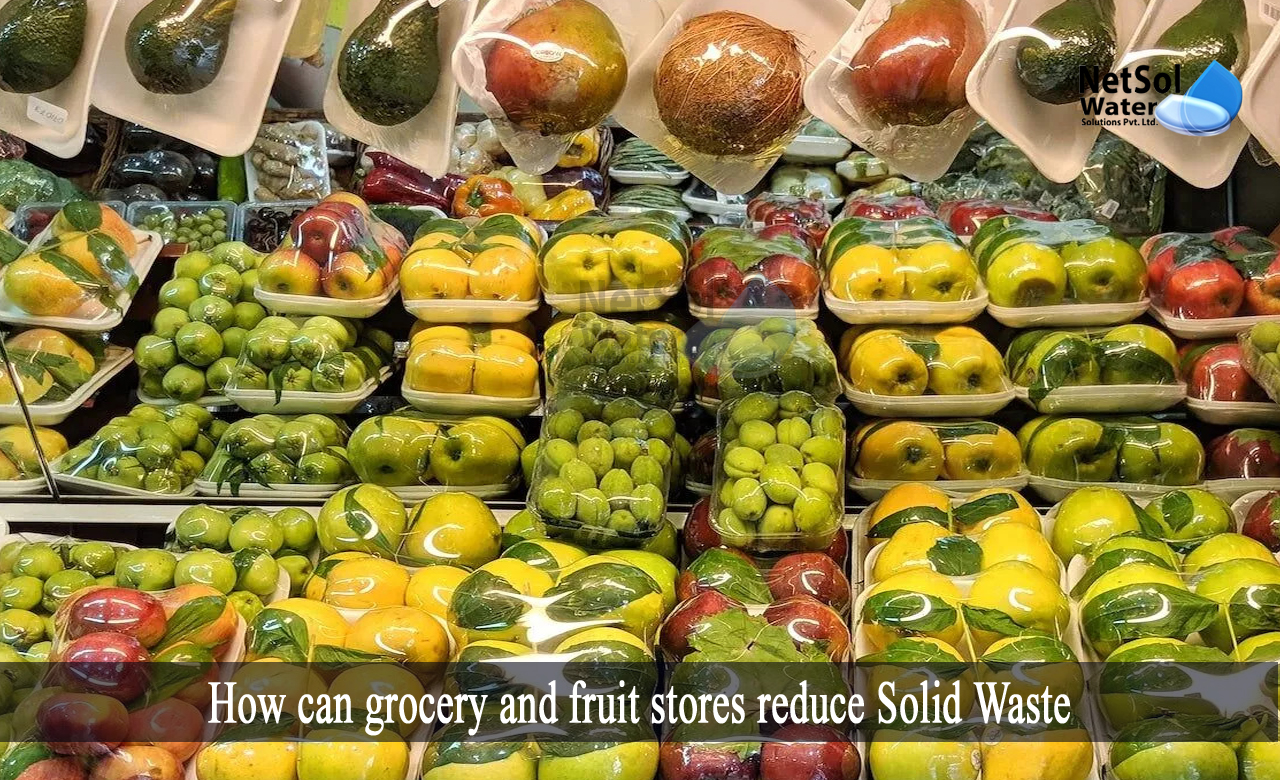Introduction
You probably already know that grocery stores’ waste is a problem, if you've ever pondered about the quantity and variety of packaging materials in your basket. Wasteful practices are used in the marketing, packaging, and eventual consumption of our food.
But as consumer awareness of waste issues grows, grocery stores are beginning to catch on, and both small firms and major chains are looking for ways to cut out waste, during the food distribution process. Simply put, this includes strategies for handling perishable foods, less packaging in retailers, and decreased waste across distribution systems.
Food waste in Gr?ocery and fruit stores
Food waste is an issue throughout the entire food delivery chain. According to data on grocery store food waste, 13% of food is lost during retail and distribution, and 30% of the materials discovered in dumpsters at grocery stores are organic.
How can grocery and fruit stores reduce solid waste or food waste?
· Utilize technology to control expiration dates
Tools that automatically verify and identify products' expiration dates are now available, giving retailers plenty of time to mark down soon-to-expire items, and move stock before it spoils. Dynamic pricing, which alters the price of specific items throughout the day to grab the attention of consumers, and minimizing the possible waste, can even be used to persuade customers to buy food that is about to expire, as opposed to fresher fruit.
· Educate employees about food waste
The most likely times for food and packaging to be damaged are during travel and storage. The uncomplicated error of stacking heavy objects on top of perishables, like eggs and fruits can result in the loss of whole boxes of fresh produce. Breaking the cold chain might have much more negative and expensive effects.
· Accept faulty products
Up to 15% of all food produced is lost before it leaves the farm. This is due to retailers pushing farmers to produce more than necessary, to satisfy agreed-upon quotas and rejecting products that don't fit their aesthetic standards.
· Donate extra food
According to data, supermarkets can do more to make sure that food that is in excess gets to those who need it. Less than 9% of the extra food produced by India's top 10 businesses is donated for human use.
Cardboard waste from grocery stores and paper garbage’s
While cardboard and paper packaging from many of the products brought to supermarkets on pallets can be recycled, organising and storing it in such vast quantities can be challenging for grocery stores, especially smaller ones.
Ways to reduce paper and cardboard waste:
· One method that provides for significant space savings is the use of cardboard balers, which compress cardboard and paper into manageable bales. Additionally, this makes collection easier and could aid in volumetric cost reduction.
· Another option is to ship goods in reusable containers like sacks or plastic drums, which would drastically reduce the need for cardboard wrapping.
Plastic waste from grocery stores
Plastic wrap is frequently used inefficiently to package products in supermarkets. If things are thrown out, this generates grocery store waste for the consumer, both at home and in the store.
Ways to reduce plastic waste:
Supermarkets need to act by coming up with innovative packaging ideas. International grocery businesses are coming up with alternatives, like wrapping fruit in banana leaves. Customers can exert pressure on these companies to stop overwrapping things in plastic, and to find alternatives, if necessary, or to stop packaging them altogether.
Conclusion
We can only start to break this wasteful cycle by altering the way we consume, and distribute commodities. The greatest option up until that point is to make sure plastics are correctly collected, sorted, and diverted from landfills, whenever possible.
Radical adjustments must be undertaken throughout the food supply chain, to address the problem of food waste throughout the world.
Does your company have the resources necessary to fulfil its role?
Netsol Water provides numerous advanced solutions to avoid and recycle solid waste, to handle India's solid waste problem.
To effectively control pollution of water, air and land, and to manage solid waste sustainably, we offer various treatment solutions like wastewater treatment plants, water treatment plants, solid waste recyclers, and much more.
Netsol Water is Greater Noida-based leading water & wastewater treatment plant manufacturer. We are industry's most demanding company based on client review and work quality. We are known as best commercial RO plant manufacturers, industrial RO plant manufacturer, sewage treatment plant manufacturer, Water Softener Plant Manufacturers and effluent treatment plant manufacturers. Apart from this 24x7 customer support is our USP. Call on +91-9650608473, or write us at enquiry@netsolwater.com for any support, inquiry or product-purchase related query.



